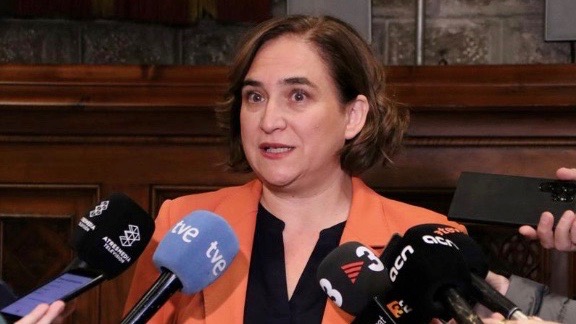A New Bottleneck Emerges For U.S. Oil And Gas
- Despite the mostly impressive top- and bottom-line growth, capital discipline and returning cash to shareholders have been consistent themes for oilfield services giants.
- Wood Mac has reported that in 2022, the average cost of drilling and completing a well in the U.S. Lower 48 states rocketed 34%.
- Oilfield services capacity in key markets, including North America, is a key determinant of the pace of growth in oil and gas production.
When the energy crisis hit a nadir two years ago, highly indebted E&P companies quickly changed their operational playbook, adopting stricter cost discipline, cutting back on expensive drilling programs and vowing to return more cash to shareholders in the form of dividends and buybacks.
But E&Ps are not the only ones pursuing this new strategy. Oilfield services (OFS) companies have also adopted greater cost discipline, prioritizing cash generation and distributions to shareholders. For instance, in their latest earnings season, OFS giants Schlumberger (NYSE:SLB), Baker Hughes (NASDAQ:BKR) and Halliburton (NYSE:HAL) announced significant dividend hikes and heightened share buybacks.
SLB reported full-year revenue of $28.1 billion, good for a 23% Y/Y increase while net income of $3.4 billion grew a robust 83%Y/Y. SLB raised its quarterly dividend by 43% and resumed share buybacks. The company says that it expects to distribute more than 50% of free cash flow to shareholders in dividends and buybacks in the current year. SLB has also been strengthening its balance sheet, managing to pay down $1.7B in debt during the year to bring it down to $9.3B.
BKR reported Q4 2022 revenue of $5.9 billion, up 10% sequentially and up 8% Y/Y. Non-GAAP net income clocked in at $692 million, up 38% sequentially and up 21% Y/Y while net income fell 38% Y/Y to $182 million. Despite the lower profit, BKR announced its first dividend hike for the first time since 2017.
Meanwhile, HAL reported full year revenue of $20.3 billion, up 33% Y/Y while full year operating income of $2.7 billion increased 50% Y/Y. The company announced a 33% divided hike and resumed its share buyback program.
Despite the mostly impressive top- and bottom-line growth, capital discipline and returning cash to shareholders have been consistent themes in these companies’ latest earnings calls while capex growth remains muted. But global research and consultancy group Wood Mackenzie says that this is not necessarily a good thing from an E&P perspective.
Limiting Growth
Indeed, Wood Mac says that services capacity in key markets, including North America, is a key determinant of the pace of growth in oil and gas production, noting that running equipment harder is likely to result in more frequent breakdowns and disruptions. The analysts have warned that execution risk has the potential to be an even more serious problem than cost inflation, one of the biggest concerns for these companies in recent years. The experts say that capacity utilization rates for frac spreads--the pressure pumps used for hydraulic fracturing--and super-spec high-quality rigs are already running high.
Wood Mac has reported that in 2022, the average cost of drilling and completing a well in the U.S. Lower 48 states rocketed 34% as prices for diesel, proppant, and steel pipe hit record highs. However, the analysts expect cost inflation to be moderate this year, with costs expected to only rise 10%.
OFS companies might also be negatively impacted by new exploration and drilling practices being adopted by oil and gas producers. According to Wood Mackenzie’s ‘Oil and gas exploration 2022 edition, exploration well numbers in 2022 were less than half the numbers during pre-pandemic years; luckily the total volume of 20 billion barrels of oil equivalent was comparable to the average in the 2013 – 2019 period, creating at least $S33 billion of value. In other words, E&P companies are unwilling to go back to their drill, baby, drill days and are instead focusing their energies on low-cost, lower-carbon but high-yield assets.
“2022 was a standout year for exploration,” says Julie Wilson, Director of global exploration research at Wood Mackenzie.
While volumes were good, Wilson says, they aren’t “stellar”.
Still, she says, “explorers were able to drive very high value through strategic selection and focusing on the best and largest prospects”.
The end result is that we’re seeing new discoveries with higher-quality hydrocarbons in portfolios. And it’s also better for the climate because these more strategic discoveries allow companies to “reduce carbon by displacing less advantaged oil and gas supplies while also meeting the world’s energy needs,” according to Wilson.
Wood Mac says that the highest value came from several new deepwater discoveries in Guyana and Brazil; world-class discoveries in a new deepwater play in Namibia; and resource additions in Algeria.
The average discovery last year was over 150 million boe, more than double the average of the previous decade. National oil companies (NOCs) and oil majors accounted for nearly 75% of new discoveries, with Exxon Mobil (NYSE: XOM), TotalEnergies (NYS: ETTE), Petrobras (NYSE: PBR) and QatarEnergy leading the way in net-new discovered resource.
Another interesting development: Liquids accounted for 60% of new discoveries, marking just the third time in two decades that liquids made up the majority of new discoveries.
By Alex Kimani for Oilprice.com


